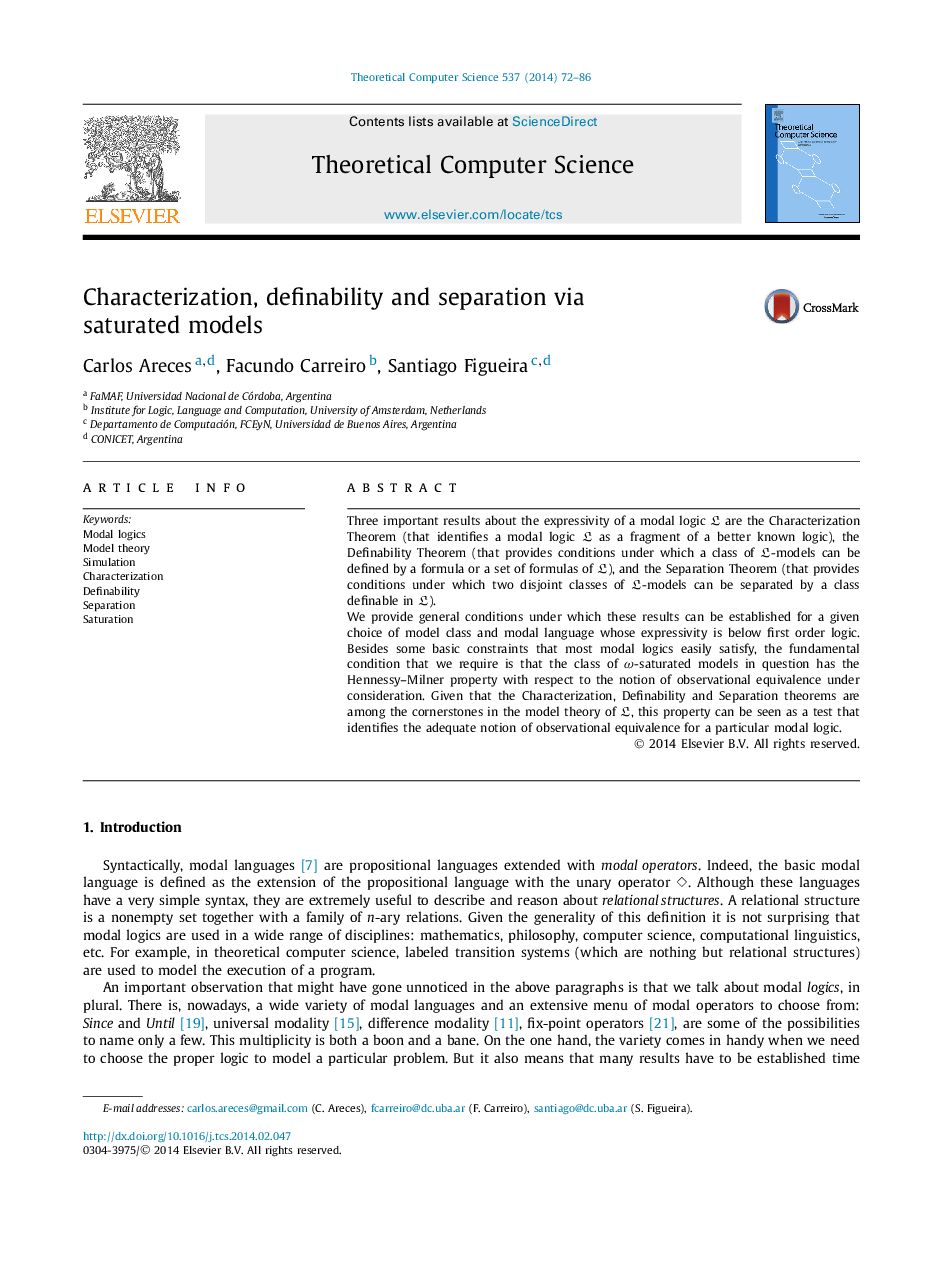| Article ID | Journal | Published Year | Pages | File Type |
|---|---|---|---|---|
| 434251 | Theoretical Computer Science | 2014 | 15 Pages |
Three important results about the expressivity of a modal logic LL are the Characterization Theorem (that identifies a modal logic LL as a fragment of a better known logic), the Definability Theorem (that provides conditions under which a class of LL-models can be defined by a formula or a set of formulas of LL), and the Separation Theorem (that provides conditions under which two disjoint classes of LL-models can be separated by a class definable in LL).We provide general conditions under which these results can be established for a given choice of model class and modal language whose expressivity is below first order logic. Besides some basic constraints that most modal logics easily satisfy, the fundamental condition that we require is that the class of ω -saturated models in question has the Hennessy–Milner property with respect to the notion of observational equivalence under consideration. Given that the Characterization, Definability and Separation theorems are among the cornerstones in the model theory of LL, this property can be seen as a test that identifies the adequate notion of observational equivalence for a particular modal logic.
